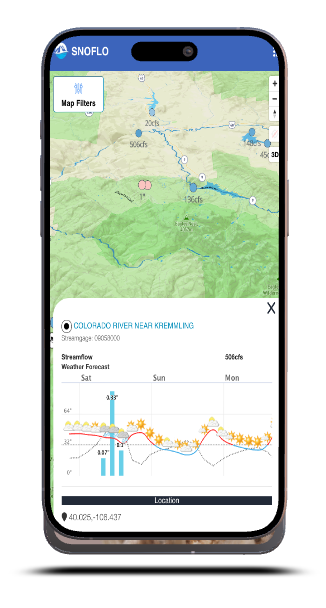Streamflow
10cfs
50cfs
100cfs
250cfs
500cfs
1,000cfs
10k cfs
100k cfs
Snowpack
5"
10"
25"
50"
75"
100"
150"
200"

Know Before You Go
How to use the Map
Snoflo’s interactive map gives you complete control over your outdoor data experience. Toggle on and off dynamic layers featuring snowpack, streamflows, reservoirs, weather alerts, and more — all updated in real time. Filter by region or activity type to pinpoint exactly what matters to you, from ski resorts and campgrounds to fishing areas and boat ramps. It’s the ultimate tool for visualizing the outdoors with precision and ease.

